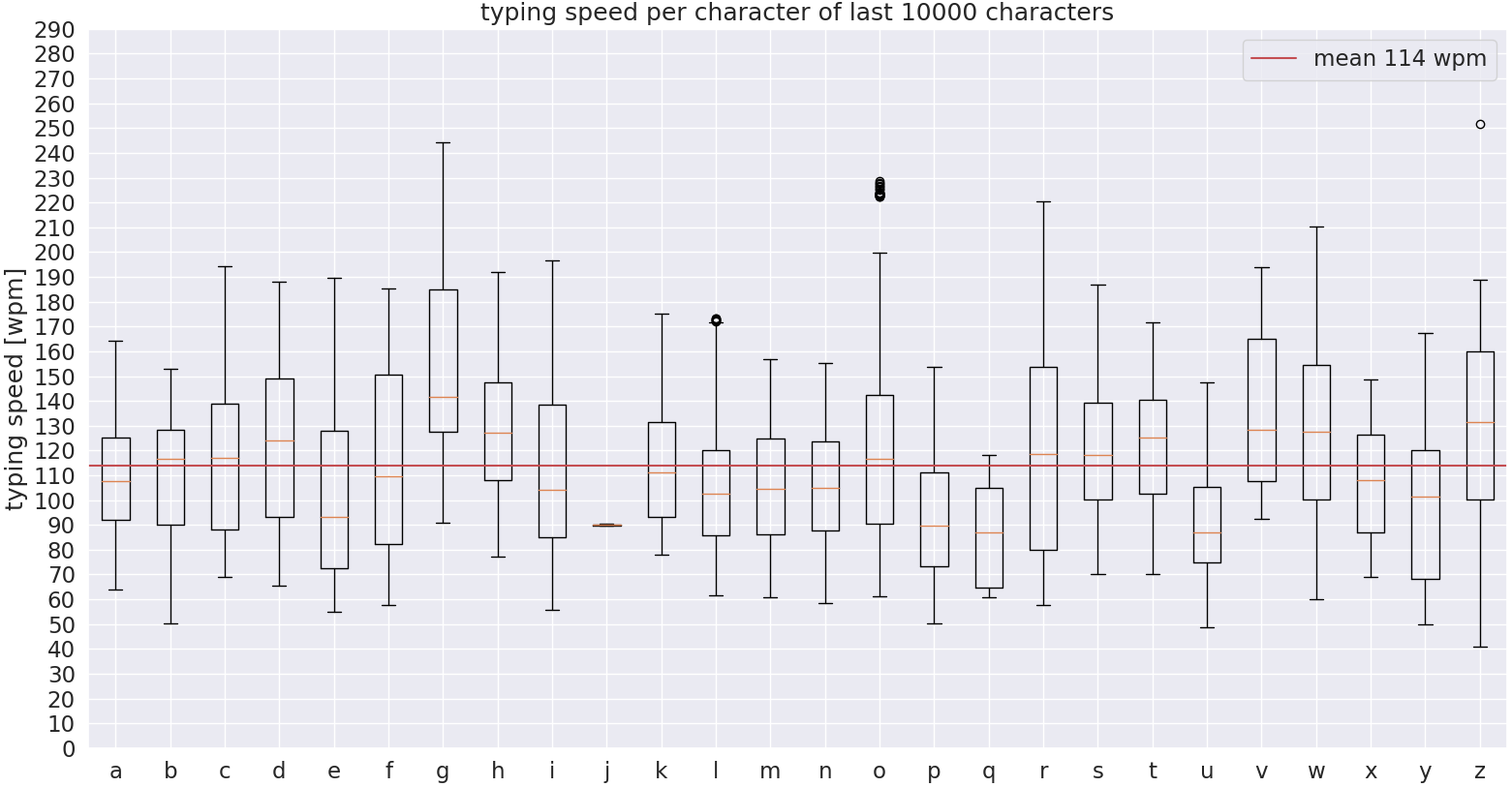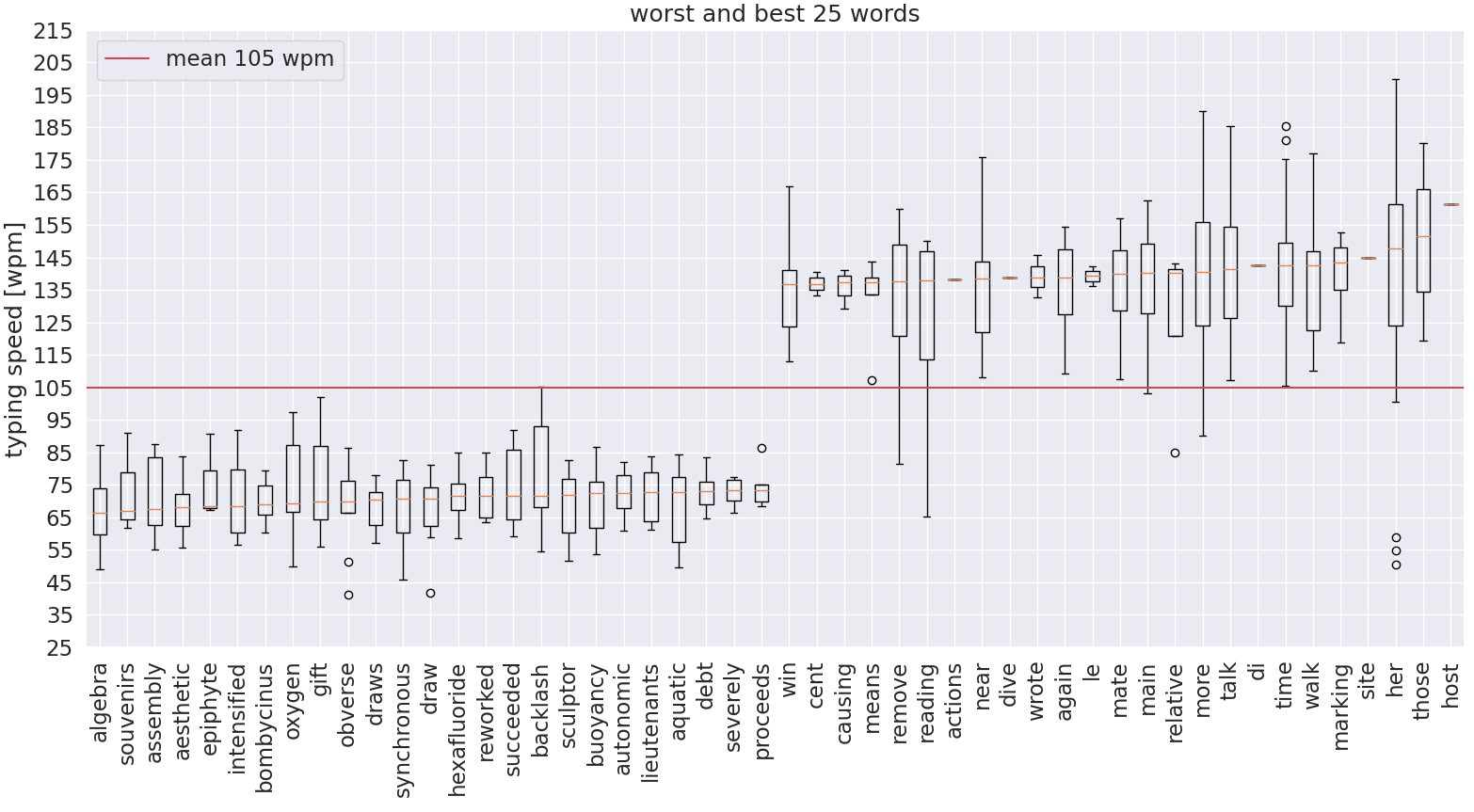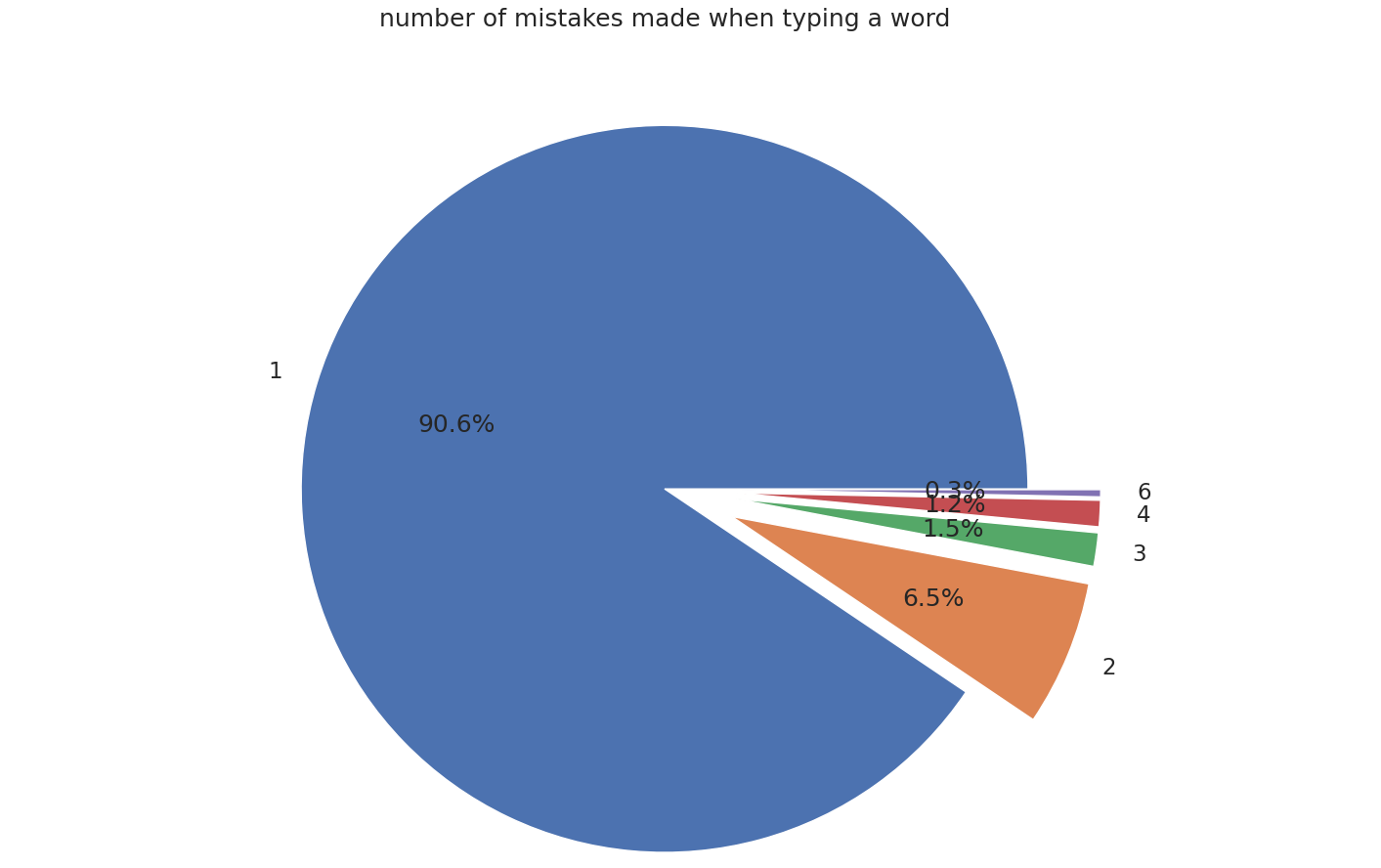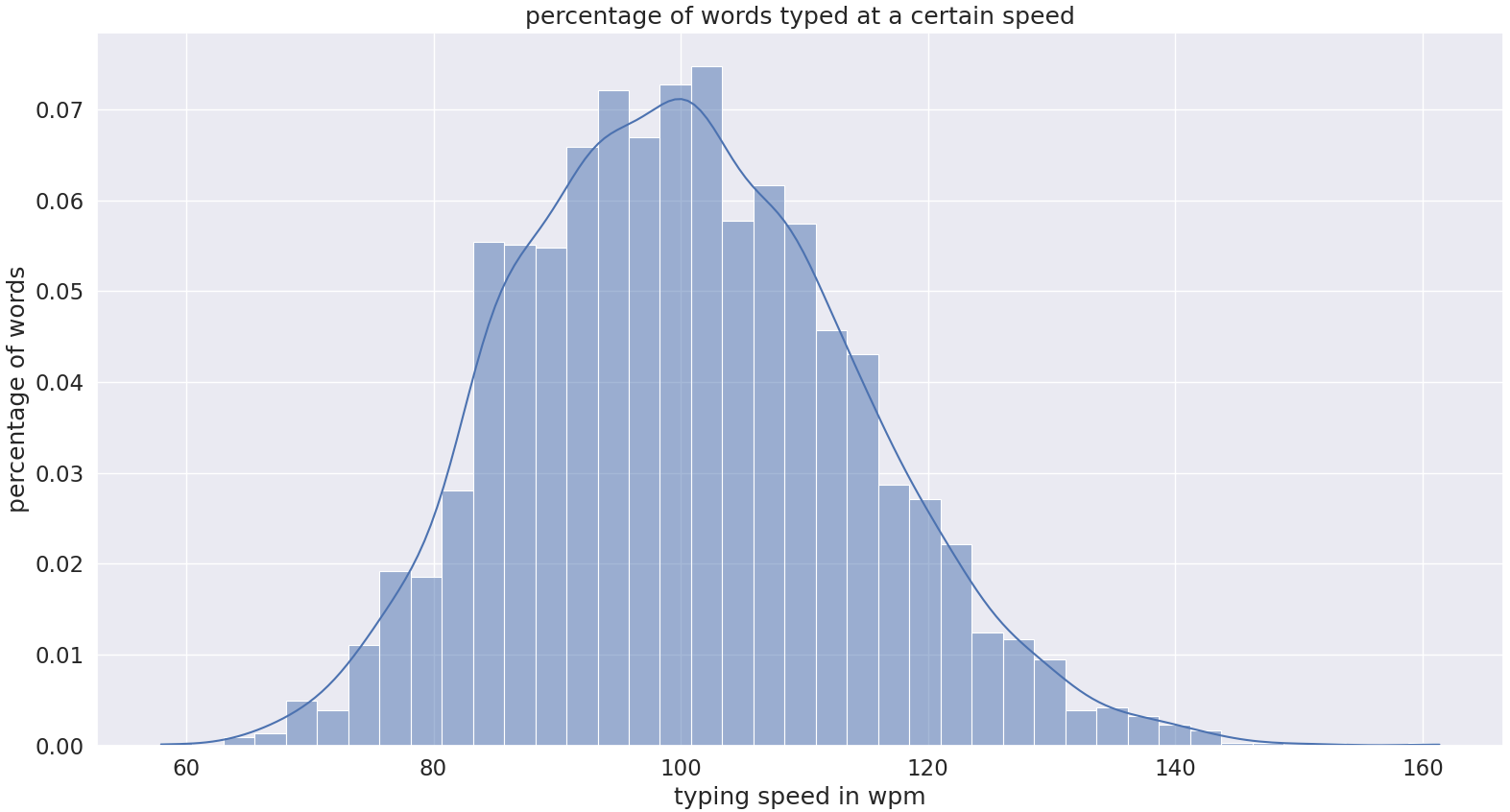Typetest
Test your typing speed without leaving the terminal.
analyse your results
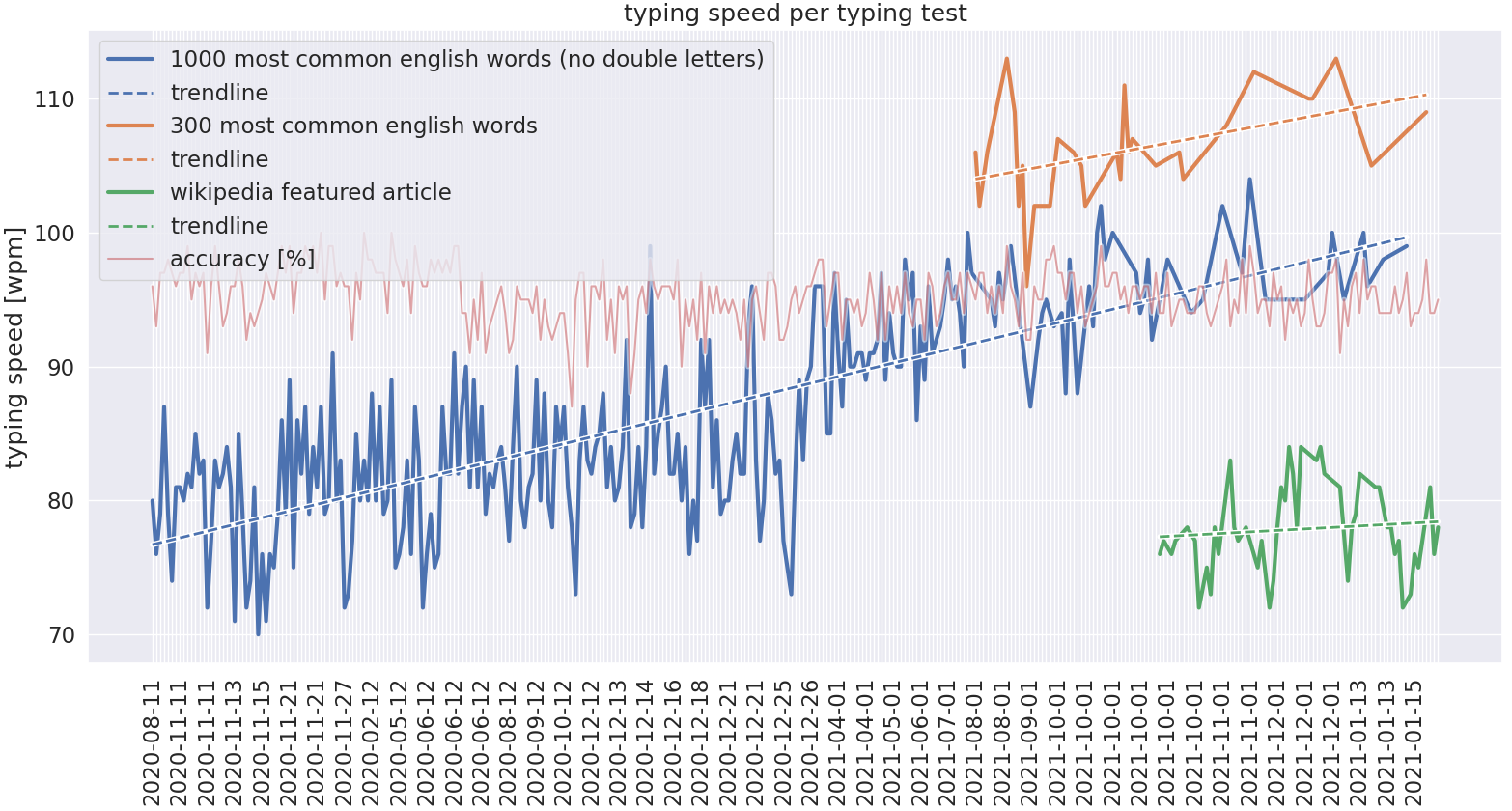
You can find the rest of the charts at the bottom of this page.
inception of the idea
Differences in the way typing speed is calculated and feedback across platforms got me interested in writing my own program for testing typing speed. I’ve come to love how simple and unrestrictive 10fastfingers and keybr feel compared to typingclub and typeracer. They all have great advantages for varying purposes but when it comes to warming up or just waiting for some program to compile (have you tried compiling chromium?) I am yet to find a rival to 10fastfingers. That is why I decided to clone its functionality and add some features I love from other sites.
typetest
typetest is a self-contained minimal typing test program written with blessed.
It calculates typing speed as sum of spaces and characters from correctly written words divided by test duration.
Adjustable settings are duration, input, output, rows and shuffle, which can be set using the command arguments.
The results of typetest by default go into a file aptly named results positioned in the same directory as typetest.
ideas for tests
Along with typetest this repository features sample tests.
Try them like so: typetest -s -d 60 -i common_200 or scrape something of the internet, like a featured article on wikipedia.
#!/usr/bin/env python3
import re
import requests
from bs4 import BeautifulSoup
word_pattern = re.compile(r"['A-Za-z\d\-]+[,\.\?\!]?") # symbols to keep
url = 'https://en.wikipedia.org/wiki/Special:RandomInCategory/Featured_articles'
r = requests.get(url)
soup = BeautifulSoup(r.text, 'html.parser')
for sup in soup.select('sup'):
sup.extract() # remove citations
text = ' '.join(p.text for p in soup.select('p'))
text = re.sub(r'\[.*?\]|\(.*?\)', '', text) # remove parenthesis
print(' '.join(re.findall(word_pattern, text)))
If you create a file called wiki_random you can start the test with wiki_random | typetest.
Write your own scraper, you may find some suggestions here.
usage
usage: typetest [-h] [-d DURATION] [-i INPUT] [-o OUTPUT] [-s] [-r ROWS]
optional arguments:
-h, --help show this help message and exit
-d DURATION, --duration DURATION
duration in seconds (default: inf)
-i INPUT, --input INPUT
file to read words from (default: sys.stdin)
-o OUTPUT, --output OUTPUT
file to store results in
(default: /home/medo/repos/typetest/results)
-s, --shuffle shuffle words (default: False)
-r ROWS, --rows ROWS number of test rows to show (default: 2)
example:
typetest -i test.txt -s -d 60
echo 'The typing seems really strong today.' | typetest -d 3.5
typetest < test.txt
shortcuts:
^c / ctrl+c end the test and get results now
^h / ctrl+h backspace
^r / ctrl+r restart the same test
^w / ctrl+w delete a word
^u / ctrl+u delete a word
installation
*nix
- install python 3
- install blessed
- clone this repository
- run
python typetest -s -d 60 < common_300 - (optional) add
typetestto path or make an alias likett - (optional) store your results in some file and analyse
windows
caveats:
- Redirecting or piping test words into the program isn’t tested yet (
typetest -i input.txtshould work as intended).
A way to completely avoid the aforementioned caveats is to use a linux subsystem (WSL), installation details can be found here. The rest of the installation steps are the same as for *nix.
notes
- A Note on Calculating Text Entry Speed
- websites I trained typing at:
- 10fastfingers.com
- monkeytype.com
- keybr.com
- nitrotype.com
- typingclub.com
- how-to-type.com
charts
